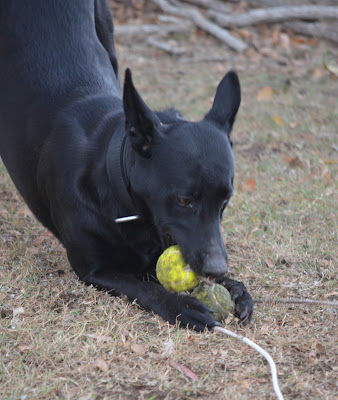I have spent pretty much the entire summer traveling everywhere from Mississippi to Chicago to Vermont to North Carolina with anywhere from between 4 and 6 dogs. People tend to think of that as sounding much more difficult than it actually seemed to be. However I think the main point that is overlooked was that it was my job, or at least part of it, so it is not like I was doing something else and taking the dogs along. As the long hot summer progressed though I have learned a few things, tips of the trade so to speak....
No matter how cheap the motel, drive up doorways are totally worth it....Should anyone feel the need to point out the safety concerns, I should remind you that I was traveling most of the time with 2 malinois 2 rottweilers and a (noisy) german shepherd. Three of the above dogs were were trained police dogs. Go ahead, try to break into my room....
Take at least a few more crates than you have dogs. I didn't have to crate all the dogs in the room, just a few (I did want to sleep after all). It does make it much easier if you can put the crate in the room and then move the dog from the car to the room.Soft crates work well for crate trained dogs who respect crates. Whether we were in hotels, the car or the motorhome or someones house I think the dogs really appreciate having their own little "space" that is constant.
Take your own pillow. Sure they wash the pillowcase but do you really want to snuggle up to that hotel pillow?? In the case of the Motel 6 in Pinehurst NC a sleeping bag is also a handy item (no way was I sleeping in that bed.)
Traveling dogs get the occasional bout of diarrhea. Don't ask my why. It comes on suddenly and goes away just as fast. Canned pumpkin every few days seems to prevent this. It is cheap, the dogs like it and in this case a pinch of prevention (i.e. pumpkin) is certainly worth a pound of cure (i.e. fill in the blank).
Eat properly. Hotels are surrounded by some of the scariest places to eat. Did you know that the Cracker Barrel Restaurant refuses to provide nutritional information?? I wonder why that is... If it weren't for these two places I would have starved to death.
Along with healthy eating, exercising is also a good idea. The iphone apps from bluefin kept me on a training program AND eliminated the need for me to calculate distances (or keep track of where I was running for that matter). The iphone just plays your music and the app tells you when to start and stop running and keeps a GPS log of your run. It also expects you to progress through the program over 6-8 weeks so you don't want too big a gap between runs or you will regret it. The fear of future suffering is apparently a real good motivator...
You have to be a little adventurous though when your running "trail" turns into this though.
And also try not to annoy the locals....
A scenic view always helps the run go by faster though...
And finally, it also helps to travel with VERY good dogs who go with the flow and adapt to just about anywhere they happen to be spending the night with very little fuss.





























